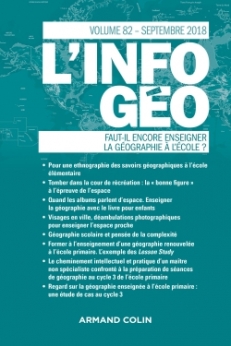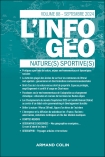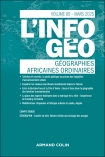
L'Information géographique (3/2018)
Pour acheter ce numéro, contactez-nous
Recevez les numéros de l'année en cours et accédez à l'intégralité des articles en ligne.
Cet article, tiré de ma thèse, propose une nouvelle approche des savoirs géographiques dans un contexte scolaire en étudiant un double angle mort des recherches en didactique de la géographie : celui de l’école élémentaire et celui des savoirs. Il s’agit de montrer dans un premier temps comment on peut penser et analyser de manière alternative la place et le rôle des savoirs géographiques en classe en proposant une méthodologie nouvelle. J’ébauche ensuite une ligne de relecture, fondée sur une démarche ethnographique, de la place des gestes et du maniement des outils. Colorier, tracer des traits, écrire sont autant d’agir qui constituent selon nous, une matrice originelle de l’élaboration des savoirs géographiques. Cette réflexion invite à repositionner clairement l’apprentissage de la géographie et du rapport au monde dans une matérialité inhérente au contexte de la classe. Pour finir, j’adresse une invite globale, réflexive et de nature épistémologique, afin que nous, géographes, réfléchissions de manière collective, à ce qui fonde nos élémentarités dans le contexte contemporain de recompositions de nos savoirs.
This article, based on my thesis, proposes a new approach to geographic knowledge in a school context by studying a double blind spot of research in geography didactic: primary school and knowledges. At first, I will show how we can think and analyze in an alternative way the place and the role of geographical knowledge in school context by proposing a new methodology. Based on an ethnographic method, I reconsider the place of gestures and the handling of tools (like papers and pencils). To color, to draw, to write constitute an original matrix of the elaboration of geographical knowledge. The hand, by the gestures that it executes, and which are specific to the geographical knowledge This thesis invites to reposition clearly the learning of the geography in a materiality inherent to the context of the classroom. Finally, I address a global, reflexive and epistemological invitation to think collectively our elementarities in the in a context of recompositions of our knowledge.

